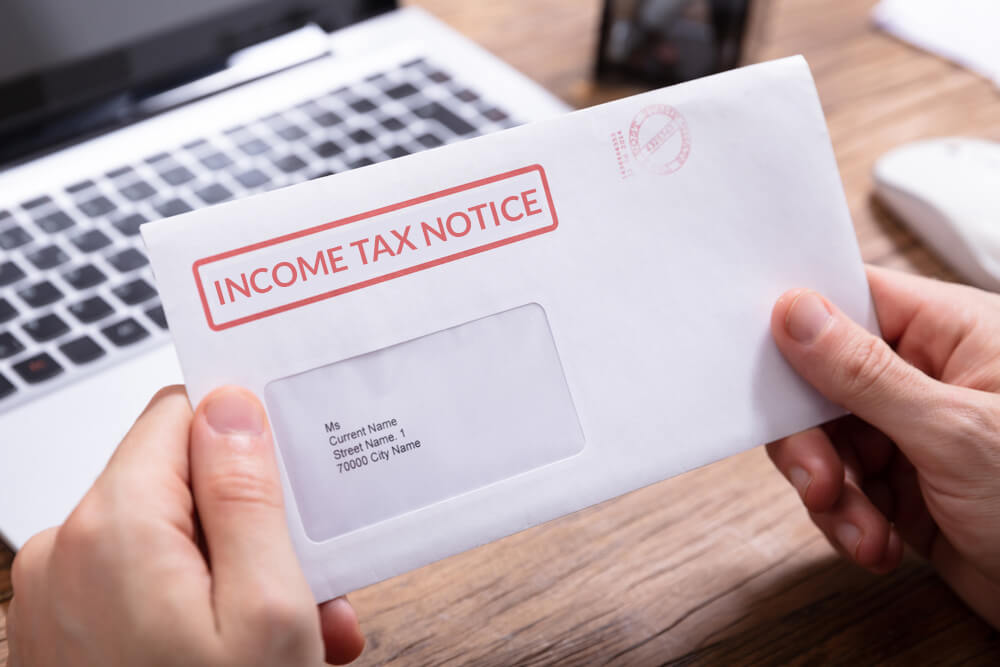What to Do When You Receive an Income Tax Notice?

What to Do When You Receive an Income Tax Notice?
Receiving a notice from the Income Tax Department can be unsettling, but it’s important to remember that not all notices are cause for alarm. Often, they are simply requests for clarification or additional documentation. Here’s a step-by-step guide on how to handle such an Income Tax Notice effectively.
IndiaFilings tax experts are on hand to swiftly prepare and file your reply to any Income Tax notice.
Get Started!What is an Income Tax Notice?
An Income Tax notice is an official communication sent by the Income Tax Department to taxpayers, addressing various matters related to their income tax filings. These notices can cover a range of issues, from simple requests for additional information or clarifications to more serious matters like discrepancies in tax returns, audits, or demands for tax dues.
The purpose of such notices is to ensure compliance with the tax laws and to rectify any inconsistencies or errors in the income tax return filings. It’s important for taxpayers to carefully review any notices they receive, understand the specifics of what is being asked or stated, and respond appropriately within the given timeframe to avoid any legal or financial penalties.
What to Do When You Receive a Notice from the Income Tax Department
Here are the essential steps to follow upon receiving a notice from the Income Tax Department:
Understand the Notice
The first step is to read the notice carefully to understand its nature. The Income Tax Department sends various notices under different sections of the Income Tax Act, 1961. Each type serves a different purpose, such as seeking additional information, intimating discrepancies in your tax return, or notifying you of pending dues.
Verify Your Details
Check the details mentioned in the notice, such as your name, PAN number, and the assessment year. Ensure that the notice is addressed to you and pertains to your tax filings.
Identify the Reason
Notices are sent for specific reasons, usually mentioned in the communication. Common reasons include non-filing of returns, discrepancies between income declared and taxes paid, or failure to disclose all sources of income.
Gather Required Documents
Based on the reason for the notice, collect all relevant documents and information that can help you respond accurately. This may include bank statements, investment proofs, tax deducted at source (TDS) certificates, and previous years’ tax returns.
Respond promptly
Notices typically have a deadline by which you must respond. Adhering to this timeline is crucial to avoid further penalties or legal action. In some cases, you can request an extension if you need more time.
Seek Professional Help
If you’re unsure about how to proceed or if the notice involves complex tax issues. Chartered accountants and tax advisors can provide expert guidance and help you prepare an appropriate response.
Submit Your Response
Depending on the type of notice and the department’s requirements, you may need to submit your response online through the e-filing portal or in person at the designated income tax office. Ensure your response is clear, factual, and supported by the necessary documentation.
Keep Records
After submitting your response, keep a copy of the notice, your reply, and all supporting documents. This will be useful for future reference and in case the department has any follow-up queries.
Follow Up
If you don’t receive an acknowledgement or a resolution from the department within a reasonable time frame, follow up through the official channels. You can check the status of your response on the e-filing portal or contact the helpline for assistance.
Stay Compliant
Lastly, use this experience as a learning opportunity to ensure your future tax filings are accurate and compliant. Keep records of your income, investments, and deductions to facilitate smoother tax filing processes.
Receiving a notice from the Income Tax Department doesn’t necessarily mean you’re in trouble. By understanding the notice, responding appropriately, and, if necessary, seeking professional help, you can address the issue effectively and avoid any potential complications.
3 Essential Tips for Handling an Income Tax Notice
When you get an Income Tax notice, remember these key tips:
- Reply Quickly: Always answer the notice on time. If you need more time to gather documents, let them know. This shows you’re serious about following the rules.
- Save the Envelope: Keep the envelope if you get the notice by mail. It has the tracking number, which proves when you received the notice.
- Get Help if Needed: For complex issues, it’s smart to get a tax expert help.
Conclusion
In summary, if you receive a notice from the Income Tax Department, don’t panic. Read the notice carefully, gather the necessary documents, and respond by the deadline. If the process seems complex, consider getting professional help.
IndiaFilings Tax experts can guide you in preparing and filing your response, ensuring efficient compliance with tax regulations.
Get Started!

